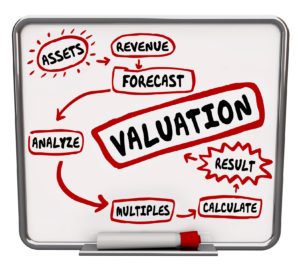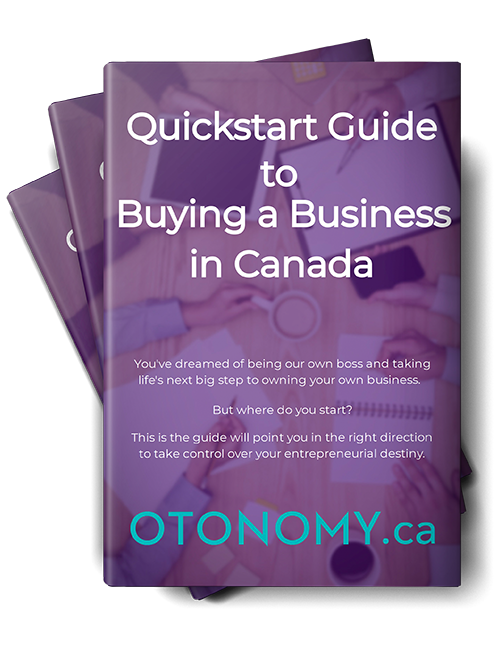1 – Introduction
Buying an established business rather than starting a new business can be a great option for many potential business owners. Established businesses come with an existing customer base, brand, assets, employees and cash flow. There is also the risk that you may purchase any issues that the business has. To mitigate this, you should be clear on what it takes to run the business you are considering, and complete your due diligence prior to finalizing the purchase.
Buying a business can be a time-consuming and complex process. You will need to examine in detail the business you plan to purchase, ensuring you understand its financial position, current position in the market, structure, and how you will want to run the business.
You will need to review all business records, plans, procedures, and acquaint yourself with the competitors and the industry the business operates in. You will also need to confirm that appropriate licences, permits and registrations are in place and determine which ones can be transferred to a new owner.
Buying a business is a serious investment. You should always seek professional legal and financial advice before signing any documents.
Advantages
Buying an existing business is on the whole less risky than starting your own business, especially if you can buy a well-managed, profitable business for the right price. Consider these advantages:
- The business is already providing products/services to the market and is a known quantity to customers.
- Immediate cash flow from existing operations.
- The business should have plans and procedures in place that you can follow or adapt vs. creating from fresh.
- Existing financial history, which can be used to forecast and can make it easier to secure loans and/or attract investors.
- Existing employees with experience in the business can provide assistance and help, especially as you learn how to run the business.
- You will acquire existing suppliers, employees, assets (plant, equipment and stock), customers, and the brand.
- Many sellers are willing to negotiate a transition period where they can train you on how to run the business and help you establish relationships with customers, suppliers and staff.
Risks
Not every business that is for sale is a good prospect. It is possible that the existing owner(s) are selling due to a lack of profitability, under-performance or other issues with the business. While this may be an opportunity to buy a business below what it could be worth, it can also come with significant risks.
- External factors, such as a declining industry, increased competition or increased overhead may be impacting profitability.
- The business may be poorly managed with low staff morale, located in an undesirable location or suffer from a poor reputation.
- Major investment may be needed to update and/or replace the existing plant or other fixed assets.
- Financial and business record keeping may not be up-to-date making it difficult to understand how the business is currently operating.
- The seller’s established relationships may be a major factor for the success of the business.
- Under-performing businesses can require a lot of investment to make them profitable and may have hidden costs that are not immediately clear at the time of sale.
2 – Are You Ready To Buy A Business?

Before you commit to buying a business it is important to know what to expect. Taking time to reflect on what owning a business will mean for you and your family is critical. Not everyone is ready to invest the time and energy that owning a small business demands. You need to understand how you will finance the purchase, as well as whether you have the right skillset and ambition to succeed.
Once you’ve decided you’re ready, you then need to find a business that suits your finances, abilities, goals, and preferred work-life balance.
- What is your preferred industry(s) and do you have the skills and knowledge to be successful in running a business in that space?
- How many hours are you willing to commit per week? Many retail businesses operate seven days a week, restaurants are almost always open in the evening and as the owner, you will likely be on call 24/7.
- Is the business well located geographically (potential for growth, distance to travel to and from work, customer access, etc.)
- Do you have a preferred business model (wholesale, retail, distributor, on-line, etc.)
Remember, some offers seem too good to be true because they are. Be sure to conduct due diligence with help from your accountant and lawyer before committing to a purchase.
3 – Preparing To Buy A Business

Once you have decided you’re ready to buy a business its time to find the business of your dreams on Otonomy. Otonomy will let you search for businesses for sale across Canada, and give you an easy to use marketplace where you can learn about available businesses and connect with sellers.
As you build a shortlist of businesses you are interested in, the time has come to engage with the experts, organize your finances, and learn more about the industries and businesses you are considering.
Engage With Experts
Having strong professional advice is essential to the due diligence process. At a minimum, you will need the services of a lawyer (to draft a purchase agreement, review registrations and licenses and advise on any other potential legal hurdles) and an accountant (to advise on the financials and operations).
Organize Your Finances
Buying a business is a significant investment so pre-planning and organization are essential. You may not be able to purchase the business without financial assistance (banks, investors, personal loans). As such, it will benefit you greatly to spend time reviewing your options and building a business plan for the business you wish to own. Items to consider:
- The purchase price of the business.
- Any immediate outlays costs that may be required at the time of purchase or in the immediate term.
- Loan repayments and servicing costs, if applicable.
- The working capital requirements for your business and your cash flow projections.
- Professional fees and charges related to the purchase.
- Any other ancillary fees that may be generated as part of the purchase.
If you choose to apply for financing for your purchase commercial lenders will consider the following criteria to assess your loan application.
- Ability to service the loan (interest and periodic repayments towards principle)
- Security in the form of collateral or other fixed assets.
- The financial history of the business including profit & loss, and cash flow forecasts (forecasts need to be supported by realistic assumptions about future trading).
- Most financial institutions will require a full business plan.
It is important that you are able to supply all of the information requested by a potential lender as failing to do so will greatly reduce your ability to secure financing. Check with your lender in advance to gather their specific requirements. You can also work with your experts and ask for their assistance on funding paths.
Industry and Business Research
- Review any news articles, posts on industry association websites, and speak with experts in the space to determine future trends and current industry information.
- Ask who the competition is and what does the business you are considering do differently that gives an advantage.
- Visit the location (if a retail business) at different times of day/night to gauge traffic and demographics.
- Review the business’s website, Google Business listing, and any other marketing materials and/or customer reviews.
- Try the business’s products/services.
- Ask the seller (or their agent if applicable) why the business is for sale.
- Talk to the business’s customers and suppliers.
- Review any publicly available credit and corporate information about the business’s structure, owners, and directors.
4 – Completing Due Diligence

When buying an existing business it is vital that all aspects of the business are examined in detail. This due diligence is typically completed once an agreement in principle has been reached between the buyer and the seller, yet before a binding contract has been signed. This is typically outlined as part of a letter of intent between the buyer and the seller, or their agents. This step is typically done in concert with your lawyer and your accountant.
Properly completing due diligence allows you as the buyer to assess the asking price and review the overall details of the business. It also allows for a more accurate risk assessment prior to purchase as it gives you as the potential buyer access to the business’s confidential information such as their detailed financials and business processes.
Due diligence also gives you the opportunity to ask any questions you may have about the business and if negotiated may allow you to interview existing staff so you can gain insight from them.
Fulsome due diligence can mean the difference between buying a profitable business you can grow and take on something that will lose money.
Common Due Diligence Items
To conduct due diligence you’ll need to carefully review:
- Current and historical (last 3 to 5 years) financial information including income statements, cash flows, balance sheets, tax returns, profit & loss, etc.
- Records of accounts receivable and payable.
- Utility, lease, and other reoccurring accounts.
- Bank loans, lines or letters of credit, leases, and any other liabilities.
- The seller’s statements about the business (reasons for selling, the business’s reputation, state of the business overall, potential for growth, competition, etc.)
- Minutes of directors’ meetings and management meetings
- Details about existing employees, suppliers, and any other pertinent information that may impact a new owner.
- Details about any short or long-term contracts/agreements that would transfer to a new owner.
- Details about plant, equipment, and all other assets including the current state of operation, repairs needed, and whether they are fully depreciated and in need of replacement.
- Intellectual property assets of the business (trademarks, patents, etc.)
- Existing credit situation for the business.
Red Flags
- Overly focused on closing the sale quickly.
- Involved in active legal proceedings.
- Lack of disclosure of important information (financial statements, reasons for selling, state of the business, current reputation).
- Unwilling to agree to in-depth due diligence or insist on a short due diligence period (standard is at least 30 days).
- Refuse to introduce you to suppliers, landlords, employees, or other key individuals.
- Have a questionable credit record and history.
- The business has a poor reputation with customers, staff, and/or suppliers.
5 – Making An Offer

After you’ve completed due diligence, and have come up with a price you are willing to pay for the business, it is time to make an offer. It is strongly recommended that you build your offer with the assistance of your lawyer.
It is very common for an initial offer to be met with a counteroffer, which means that you will enter into negotiations. You may choose to conduct negotiations on your own or engage an expert to assist you.
Negotiation Tips
Negotiation is a learned skill. If you are uncomfortable with the process it is recommended that you have an expert assist you. You can also increase your negotiation knowledge in advance by reading articles, watching videos or reading books such as “Negotiation Genius” by D. Malhotra & M. Bazerman and “Never Split the Difference” by C. Voss.
- Remember this is a business discussion. Keep your emotions in check and do not allow passion to make decisions for you.
- Set your maximum price in advance and be ready to walk away if the seller isn’t willing to come down.
- Negotiations need not be distributive (i.e. just about the price). There is always an opportunity to negotiate for non-monetary items such as transition assistance, training, sales assistance, etc.
- Speed should never be a factor. Buying a business is a large financial and personal investment. Take the time to review any offers presented to you and push back on deadlines for responses that don’t give you enough time.
- Roleplay the negotiation in advance and try to anticipate what the other party will ask for, or turn down.
- Make sure you’re satisfied with the outcome. If you are not comfortable with the final deal be prepared to say so and if necessary walk away.
- Be prepared to move forward with finalizing the purchase once negotiations conclude and if both parties are satisfied.
6 – Drafting The Purchase Agreement

Once negotiations have concluded, and you and the seller have agreed to terms (price, transition, exceptions, payment terms, etc.), a legal contract is typically drawn up. This contract ensures that both parties interests are properly protected, all terms of the agreement are outlined in writing, and helps to ensure that everyone involved has a clear understanding of both the deal and next steps.
You should consult with your lawyer for assistance in drawing up the contract. Further, you should consult with them and your accountant on guidance on the tax and legal implications the transaction has for you, as well as advice on how you should structure the business.
Types Of Purchase Agreements
In a typical business sale there are two types of contracts:
- Purchase of the assets of the business (i.e. you purchase items of the business such as the brand, assets, customer lists, etc.). When buying assets only, it is easier to establish whether the assets are unencumbered. Further, you may be better able to ensure that you are not inheriting any potential liabilities that could be associated with the sellers business’ past history (e.g. tax disputes, creditors, pending legal action).
- Purchase of shares in the business (i.e. you purchase all the shares in the business and, so, take over all its assets and liabilities). A share purchase means you take over the entire business including outstanding claims, legal actions, etc. Some sellers agree to provide legal indemnity, yet there is always the potential of exposure to future unexpected claims.
Always seek professional advice before you agree on what type of sale you want to proceed with and before signing.
Common Purchase Agreement Terms
The terms of the agreement work to protect both the buyer and the seller. They should be reviewed by both parties and have legal representation.
Price
Typically the purchase price will be broken up and allocated so that specific amounts are allocated to assets, shares, liabilities, etc. You should seek accounting advice regarding allocations of assets, as this can have serious tax implications.
Type of purchase
Whether you are buying a business’s assets or shares.
Payment method
When and how you will pay.
Seller’s involvement after purchase
Typically outlines whether there will be a transition and training period, and how long the former owner will stay involved with the business. It is not uncommon for some new owners to also employ the former owner to assist with longer transitions.
Restraint of trade covenant
This protects you from loss of business by limiting the former owner’s ability to open a competing business within a reasonable proximity.
Contingencies
This section typically outlines any other potential outcomes and how they should be addressed. Common examples:
- Recourse due to material changes in the business prior to the sale contract closing.
- Outcome if it is determined that information provided by the seller during due diligence or disclosure was incomplete (e.g. higher than disclosed liabilities, incorrectly claimed assets, inaccurate financials, etc).
- Any subjects on the purchase due to approval of financing for the buyer.
- If there is a payment contract for purchase, stipulations for non-payment.
- Outcome of failure to meet any of the other terms of the agreement (buyer or seller).
Any other conditions
This section covers all other items agreed upon between you and the former owner. It can include stipulations for existing employees, a detailed transition plan and agreed-upon actions prior to transition, amongst other items.




